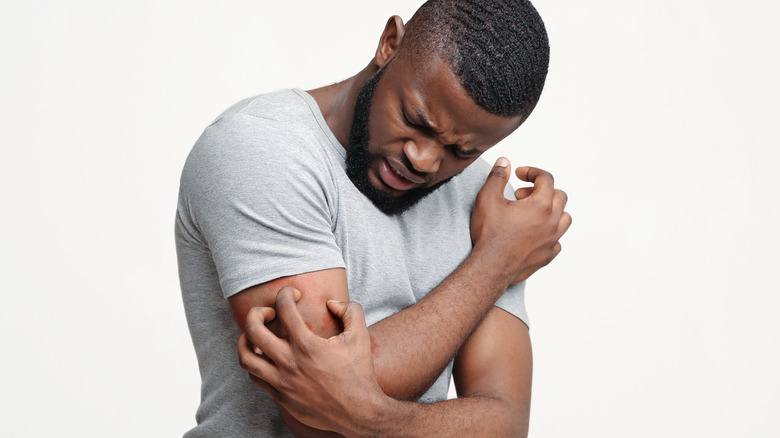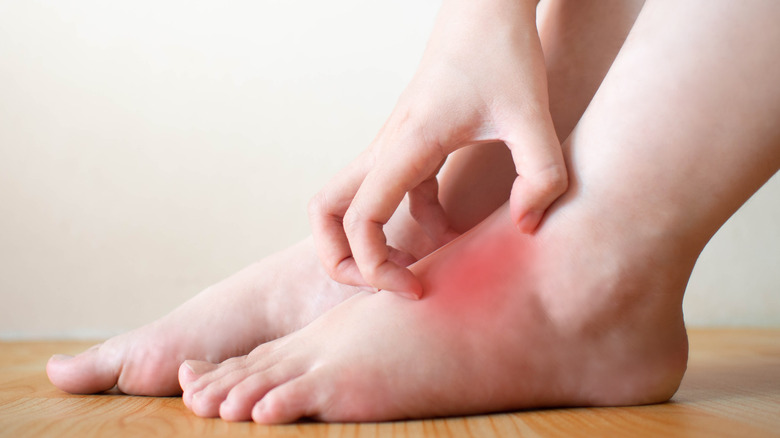This Is When You Should Be Concerned About Your Bug Bite
Nothing puts a damper on a hot summer evening like a bug bite. While not a total evening-ruiner, a bite from a pest is, well, pesky. Most of us don't give bug bites a second thought and simply leave them alone to heal on their own, but just like any other injury, a bug bite should be monitored for signs that medical attention may be required.
The process of being bitten by a bug begins with the pest creating a feeding hole on the skin's surface, which they then dispense their saliva through (via National Health Service). This results in unpleasant itching, redness, and inflammation of the skin around the site. Treatment for a bug bite is generally pretty minimal and mainly requires keeping the area clean to prevent infection. Experts suggest cleansing the site with warm water and soap and using a cold compress to relieve discomfort. While easier said than done, you'll also want to refrain from scratching.
Depending on the bug you've been bitten by, certain symptoms may be an indication that the bite has worsened. What should you be on the lookout for, and when is it best to contact a doctor?
Different bugs can pose different health risks
Regardless of the type of bug that inflicted the bite, generally speaking, any bug bite with increasingly severe symptoms is cause for concern. For example, mosquitoes can carry diseases and if you develop symptoms such as fever, nausea, or body aches within 14 days of being bitten, you'll want to consult a medical professional (via Fairview).
Spider bites are another type of bite to keep a close eye on, as some people may experience an allergic reaction. You'll want to seek emergency care if you are having trouble breathing or develop facial swelling. If possible, try to photo document the type of spider you've been bitten by so you can inform your doctor.
Additionally, Dr. Kavita Monteiro of HealthEast Clinic tells Fairview about the potential dangers of tick bites, stating, "A black legged tick, also known as a deer tick, that has been attached for more than 24 hours is concerning, because these ticks can carry disease. After 24 hours, they're more likely to transmit Lyme disease. Some studies indicate it could be less than 24 hours, which is why doctors recommend checking your skin for ticks every day."
When it comes to bug bites, the National Health Service advises reaching out to a doctor or pharmacist if you notice pus or blisters forming around the site and to seek prompt medical attention if your bite is accompanied by a rapid heartbeat, wheezing, disorientation, nausea, or faintness.


